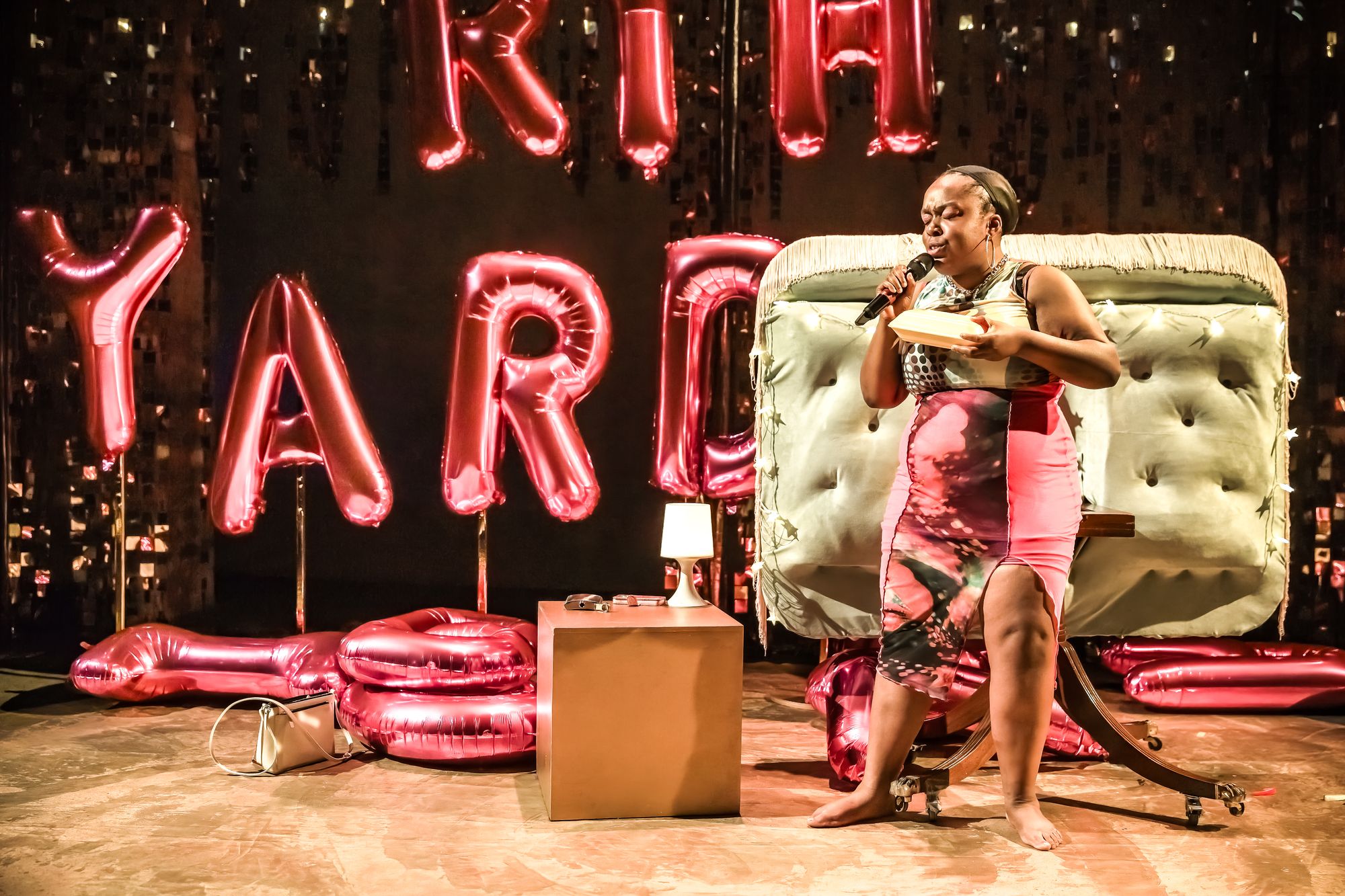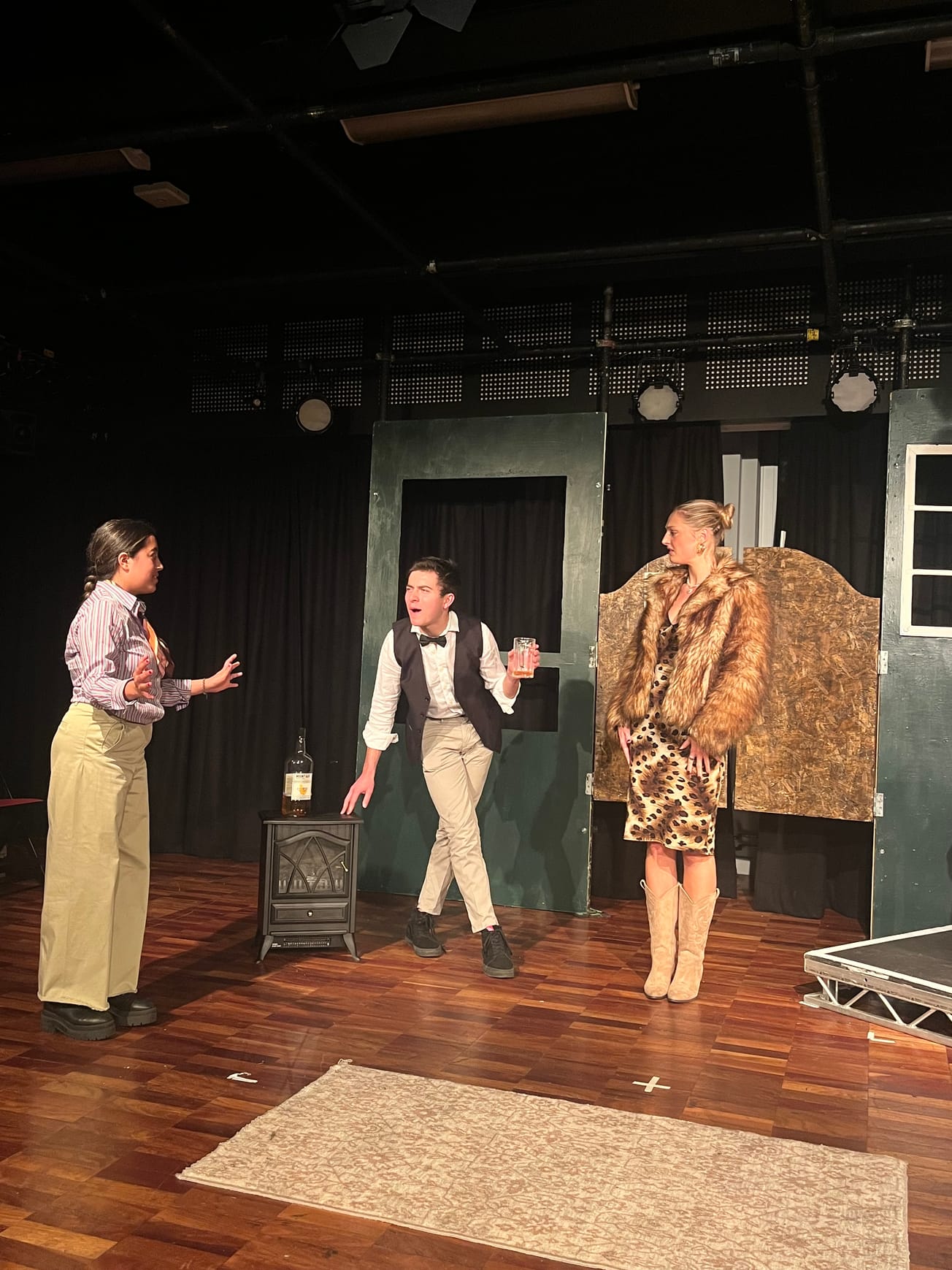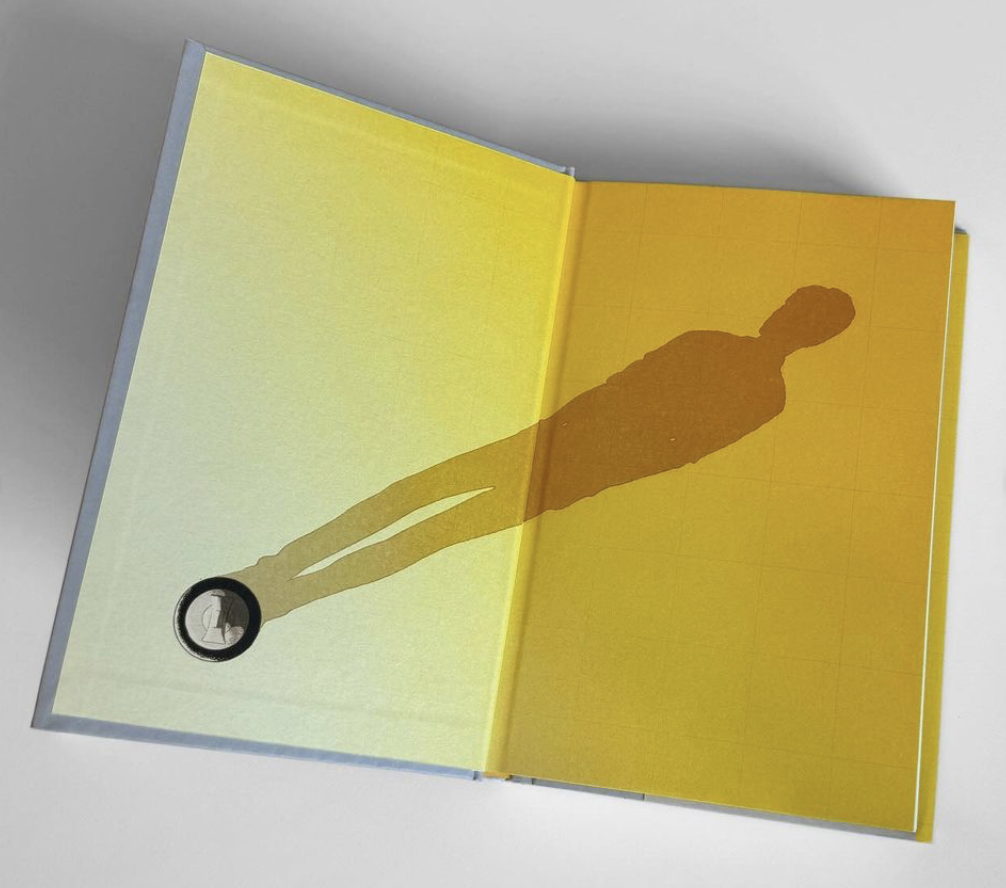By Silva Shahini, Third year, History
Tackling the trauma of early adulthood, Cheeky Little Brown looks at the struggle, bitterness and rage that comes with being in your 20's. These topics are explored in such depth, that its hard to believe it's done in an hour and a half. This play however, proves it can be done. And with only one actor.
The play begins chaotically in motion as Lady (Tiajna Amayo) ironically acknowledges how 'it's nice to be ignored' to the audience. She continuously breaks the fourth wall, with comments on female trauma and rants to the audience that it's 'like they're here to see a show'. It is a play that succinctly explores the tragedy of being in your early 20's with ironic musical stylings to replicate the friction of experiences in early adulthood. Nkeenna Akunna (the writer of the play) effectively uses symbolic markers to explore the tragedy of struggling with the mundane and the self.
The kebab, getting too drunk at a birthday party and the unbearable realisation you do not like yourself all that much. These are all markers of trauma in early adulthood which Akunna and Odimba explore and stage excellently. It feels like a sparkly mental breakdown on which the audience are trespassing. Lady's stream of consciousness is a train full force, battling through a booze-fueled nightmare, the kind of nightmare where Mr Brightside plays and you have to remember you’re getting older. Cheeky Little Brown’s use of cultural markers to represent that unexplainable 'heaviness of being' into sounds, objects or moments on stage makes that existential dread feel like something we can look at in a less threatening way. A way we, as the audience, can understand whilst still having a laugh.

The eclectic, tongue and cheek commentary of being a woman in your 20’s is the spirit of this play. The audience interactions bring some humour into a play which otherwise comments on the anxiety of growing up and breaking down; the deep, human desire to cling onto something that isn’t there anymore.
The exhaustion of feeling at a time when the night bus nearly drives off without you and your childhood best friend has moved on is something nearly everyone can relate to. However, this play is more than just a sob story and more than a clever way to strategically pull at culturally relevant heart strings . It is a thoughtful reflection on how exhausting love, identity and race can be, especially if you are navigating it alone. The play allows an exploration that suggests things will not always be difficult without trivilalising people's struggles.
Lady's self-awareness, confetti sick and her final lines of 'I’m hungry' speak to something more than Lady wanting to eat her half-finished donner kebab. They allude to her emotional state in a culturally legible way. Those final ironic lines draw parallels between the very humane feeling of sickness that one gets from hunger to the emotional sickness from being overwhelmed in your 20s. Cheeky Little Brown ends with a metaphorical representation of hope, that after some nourishment, that sickness shall pass.
Essentially, my key 'takeaway' is that Cheeky Little Brown was a resounding, engaging success.
Featured image: Craig Fuller
Have you ever seen a one women show?






